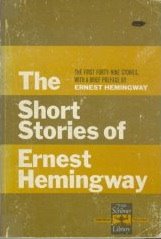 First off, this book is thick, the pages are thin, and the words are small, which is daunting. I got gasps from people, gasps, when I mentioned I was reading this book, mostly I'm guessing because big books like this tend to be boring and filled with ideas but short on story, a monstrosity that's called "classic" because what else can you do.
First off, this book is thick, the pages are thin, and the words are small, which is daunting. I got gasps from people, gasps, when I mentioned I was reading this book, mostly I'm guessing because big books like this tend to be boring and filled with ideas but short on story, a monstrosity that's called "classic" because what else can you do.But "No," I would answer the gasps, "the book is amazing, it's fascinating, and graphic and intense and funny, and it reads quickly," that was the most astonishing thing even I found. In essence, I can see why Crime and Punishment is considered a classic: because it's a really really great novel. Simple as that.
That's not to say there isn't anything to dissect, I think you could make a career out of picking this novel apart. Some people already have, which makes me happy, because then I don't have to read the novel countless times to weed through the endless themes in search of some higher meaning. If you're curious, even if you haven't read it, it is cool, so check it out (it's just wikipedia, anyways).
Crime and Punishment is a symmetrical story that follows the actions of Raskolnikov. There is too much that happens in the novel to give it a proper summary, and consequently I'm not going to try. Raskolnikov's endless struggle over his reaction to his crime and the cat and mouse game with the cunning detective Porfiry Petrovich are enough for a novel, but Dostoevsky, who apparently is a master of character, layers in so much more than that. As a reader you are greeted with so much literary treasure that it's hard to keep yourself satiated. You want more, more, more, so that even the bulk of the novel isn't enough. (I myself have to read his following novels now, there is absolutely no question, though I may wait because they are a commitment). Raskolnikov's sister Dunya, his mother Pulkheria, his friend Razumikhin, the old man Marmaledov, Raskolnikov's moral mirror Sonya, and the despicable Svidrigailov are all such satisfying characters in themselves that just by writing their names I want to read more about them. And to tell about them would take so long that instead of doing so I say: read this book!
I want to paste this section because it grabbed me. I felt that here Dostoevsky was writing in blood, or at least I feel a real communion with him in this section, and I'd like to think that one of the seeds for his book is here:
Siberia. On the bank of a wide, lonely river there is a town, one of Russia's administrative centries; in the town there is a fortress, in the fortress is a prison. In the prison there is a penal exile of the second category, Rodion Raskolnikov. Since the day he committed his crime almost one and a half years have passed.
Crime and Punishment is an absolute pleasure to read. It's philosophical, witty, and fresh (yes, fresh even if it is a classic, because I've not read anything like it). I'll never forget the end of the Part One, how I sat in bed, mouth agape in shock, and read with a ferocity I have not read with in quite a while. It wasn't the ferocity of "I've got to know what happens", but more "I can't believe what I am reading." The vignettes Dosoevsky creates are funny at times, sad at others, but altogether they are necessary, and that's what I love about his book. Multi-layered, full of meaning and ambiguity, and rich in all the right ways, Crime and Punishment made quite an impression on me, one that I hope I will not soon forget (and one I must come back to whenever I write something of my own one day).


2 comments:
Do you mind mentioning who was the translator for the edition you read? Thanx.
David McDuff, I believe.
Post a Comment